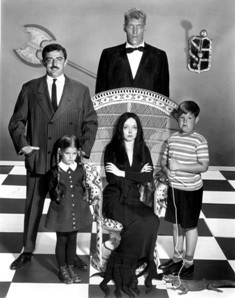 The true character of family and friends tend to show when a loved one is diagnosed with a progressive illness. Nowhere is that more evident than with a diagnosis of Alzheimer’s or other form of dementia. It’s not that people don’t want to help; they’re either unable, afraid, or unfortunately too selfish.
The true character of family and friends tend to show when a loved one is diagnosed with a progressive illness. Nowhere is that more evident than with a diagnosis of Alzheimer’s or other form of dementia. It’s not that people don’t want to help; they’re either unable, afraid, or unfortunately too selfish.
All family situations are different
Hopefully, you are in the situation where your family unites during difficult times. Regrettably, most families do not. Today’s family also tends to be more separated both geographically and emotionally than with past generations. We live hundreds if not thousands of miles apart, and we feel that we have good communication if we send an email once a month and talk on the holidays.
Family and friends will be a stressor
For whatever reason, you are the primary caregiver and you carry the vast majority of responsibility and stress. Family and friends will likely be just another stressor in an already difficult situation. As such, you need to do whatever you can to mitigate this potential agitation. You probably won’t win all of the battles but you can at least find out who is on your side.
Give them a chance to help
I’m a firm believer in giving people the benefit of the doubt the first couple of times (OK, I usually only give one chance but with Alzheimer’s it’s probably best to give them a couple of tries). After this, you can then base your judgment. At least you will have peace-of-mind knowing you tried to engage them. Otherwise, if you don’t engage family and friends early, they will likely use this as an excuse forever – “Well, you never asked for help so how could I have known?” Uugh.
It starts with communication and education
Avoid these potential problems by letting everyone in the family know about the diagnosis including friends when appropriate. Face-to-face conversations are always the best but they are not always possible. When an in-person conversation is not possible, pick up the phone. Resist the urge to send a blanket email to everyone. Email is too impersonal and people will ignore email, and oh boy am I tired of hearing, “Oh, I didn’t see it, maybe it’s in my SPAM folder”.
A group meeting is best
Bring everyone together in a social setting. Don’t forget to include your loved one every step of the way. Have a pot luck or buy pizza. Keep the mood light. Schedule it at a time that works for everyone – don’t give people excuses to avoid the meeting. If someone can’t attend in person, use video chat or get a free teleconference number (suggested link at bottom of article) so they can participate.
Educate
With Alzheimer’s, I really believe the main reason people avoid the care partners is because of fear. Fear of the unknown. We tend to avoid situations that we don’t understand or might embarrass us. To be honest, I’m still a little anxious when I’m meeting someone with Alzheimer’s disease. How will they act? How do I act? What if they do something odd and I don’t handle it properly?
It takes practice for people without knowledge of the situation. But I truly believe if you help them understand, they will learn. It’s up to you to share with family and friends what you have learned. Often times, people will visit with your loved one and they will leave saying, “I didn’t see anything wrong”. These are the people that will probably insult you without even knowing it. Remember, it’s not their fault – there are just uninformed.
I remember meeting a gentlemen and having lunch with him and his wife. I knew he had Alzheimer’s but I couldn’t really tell. Sure he was a little hesitant at answering the waiter’s numerous questions about the choice of bread but who isn’t. It wasn’t two weeks later that his wife had to place him in a memory care facility because he had become too dangerous around the house. I would never have known.
Involved, educated, and informed
Remember, your best chance at getting support and avoiding future conflict with family and friends is to get them involved early, continually educate them, and keep them informed.
For a little more insight, please check out my pamphlet by the National Institute on Aging:
Helping Family and Friends Understand Alzheimer’s Disease
And as promised above, here is a link to a free conference call service: Free Conference Call
I’ve had friends use this service without a problem. Long-distance rates do apply but if you use a cell phone you should be able to avoid these fees.
If you like what you’ve read, why not receive periodic updates when you:
Subscribe to the TinT Newsletter
You might like: How to Explain Alzheimer’s and Dementia to Children
What do you think, is it possible to include your family & friends? Do you have any tips for our other readers?





Leave a Reply